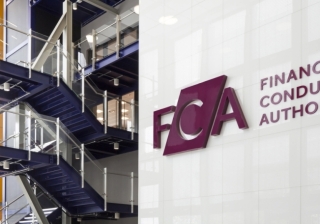Progress in adviser market moving at a 'glacial pace' following FCA reviews
The FCA has published a new evaluation of the impact of the Retail Distribution Review (RDR) and the Financial Advice Market Review (FAMR).

"This momentum must not be lost as it is critical for the financial wellbeing of the nation that the regulator, government and industry work together to ensure we can deliver the financial support people need"
Both the RDR and FAMR sought to improve the distribution of retail financial services products, and the FCA committed to evaluate their impact, to test whether they delivered their desired outcomes.
The FCA's latest evaluation found that approximately 8% (4.1m) of all UK adults have received financial advice, an increase from 6% (3.1m) in 2017.
Adviser numbers are up from 35,000 in 2012 to 36,400 in 2019, an increase of 4%.
The FCA added that the creation of the its Advice Unit has helped firms to develop new automated advice models and that consumer awareness of automated advice has increased, with 19% of consumers reporting having heard of these services, compared to 10% in 2017.
The evaluation also found that while more consumers are getting the support they need, "further innovation could help even more consumers make better use of their finances".
Firms said more tailored guidance services and simpler advice services could help to attract more consumers towards the help they need, but raised concerns about understanding the point at which more general forms of support become advice, suggesting this limits their ability to innovate.
Sarah Waring, client and proposition director at Quilter, said that although the increase in the number of people receiving advice was welcome, "growth in financial advice has been moving at a glacial pace".
She said: "Just 8% of all UK adults have received financial advice, while an increase from the 6% in 2017, we know the population that would benefit from financial advice is much wider.
“It has been some time since the regulator’s interventions through Retail Distribution Review and Financial Advice Market Review and there is palpable frustration from both the sector and the regulator that more improvements haven’t been made.
“In this report the FCA identifies two developments that would make a substantial difference to the market – simpler forms of streamlined advice and more personalised guidance services. This makes sense as we are increasingly hearing from advisers that are engaging with intergenerational planning, that younger relatives often need transactional advice rather than holistic advice given where they are in their financial journey. Reformed regulatory requirements and technology can go a long way to help fill this gap.
“It is clear that the UK remains behind markets like the US where the use of technology and AI is more advanced and they are moving away from the false dichotomy of face-to-face advice versus robo-advice. A hybrid form of advice is becoming increasingly common, which is something the UK will eventually embrace.
“That being said technology is clearly not the silver bullet. Although there is more awareness of automated advice services, rising from 10% of adults in 2017 to 19% in 2020, people remain wary. The explosion of financial scams during the Covid-19 period has made people more wary than ever. The FCA research showed that respondents were concerned that unknown brands might not survive in the market, or that they would have less robust security than the larger established firms. Technology is a great democratic power to allow services to reach a wider audience but we need to be cognisant that when it comes to their money people are very cautious.
“The FCA is wrapping this next piece of work into its call for input on the Consumer Investment Market. This momentum must not be lost as it is critical for the financial wellbeing of the nation that the regulator, government and industry work together to ensure we can deliver the financial support people need. There have been a number of false starts with financial guidance but hopefully lessons have been learned. For instance, this review shows it’s currently not working as well as it could. While most consumers (55-67%, depending on the type of guidance) who had used guidance found it to have helped ‘a little’, only a minority (14-34% depending on the type of guidance) found each of the guidance or information sources to have helped ‘a lot’ in enabling them to make a decision.
“People are obviously trying to make good decisions but many are missing out on critical support unless we can create clear boundaries to allow for the provision of guidance, which experience of Pension Wise shows us is likely to augment advice and not threaten it.
“Approximately 750,000 people across the UK now retire each year. We know that now more than ever, people need the value that financial advice has to offer. A combination of pension freedoms, the Covid-19 pandemic, volatile markets and the need for wealth to filter down the generations are just some of the reasons the UK public need greater access to advice and guidance on their financial affairs.”
Sheldon Mills, interim executive director of strategy and competition at the FCA, commented: "We want consumers to have access to high-quality advice and guidance at the right time in their lives, to give them the confidence to make better investment decisions.
"Our evaluation has found the advice and guidance market is moving in the right direction, but still has further to go. We will play our role to support the market to improve further, in the interest of more consumers. We will use the evidence base this evaluation has given us, along with the responses to our Call for Input on consumer investments, to shape our work to improve the market."
Breaking news
Direct to your inbox:
More
stories
you'll love:
This week's biggest stories:
This week's biggest stories:
First-time Buyer
Improved affordability sparks 20% rise in first-time buyers: Nationwide

Blogs
Mark Eaton: Is 2026 the year brokers die out?

Inflation
Further rate cuts dampened as inflation rebounds to 3.4%
Mortgage Rates
Two Big Six lenders increase mortgage rates as swaps rise
Vida
Vida launches high LTV 'Pathway' mortgage range

FCA
Tribunal upholds £2m FCA fine for 'corrupt and dishonest adviser'
